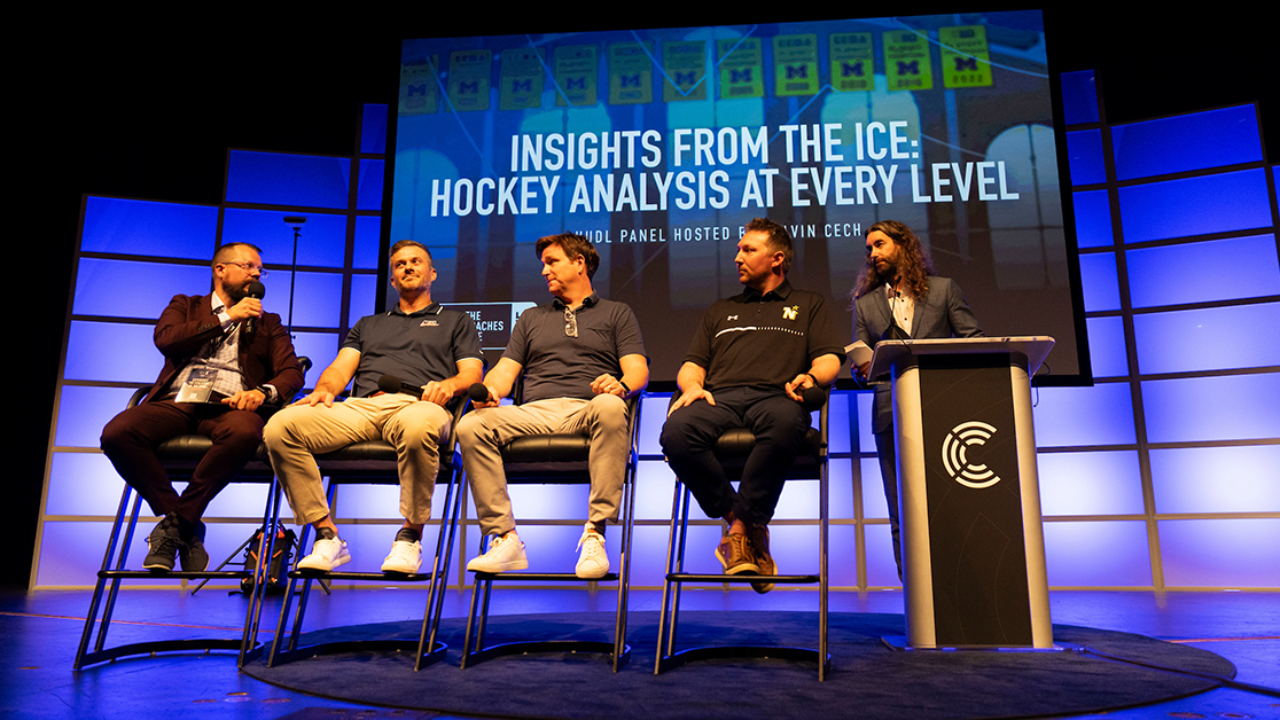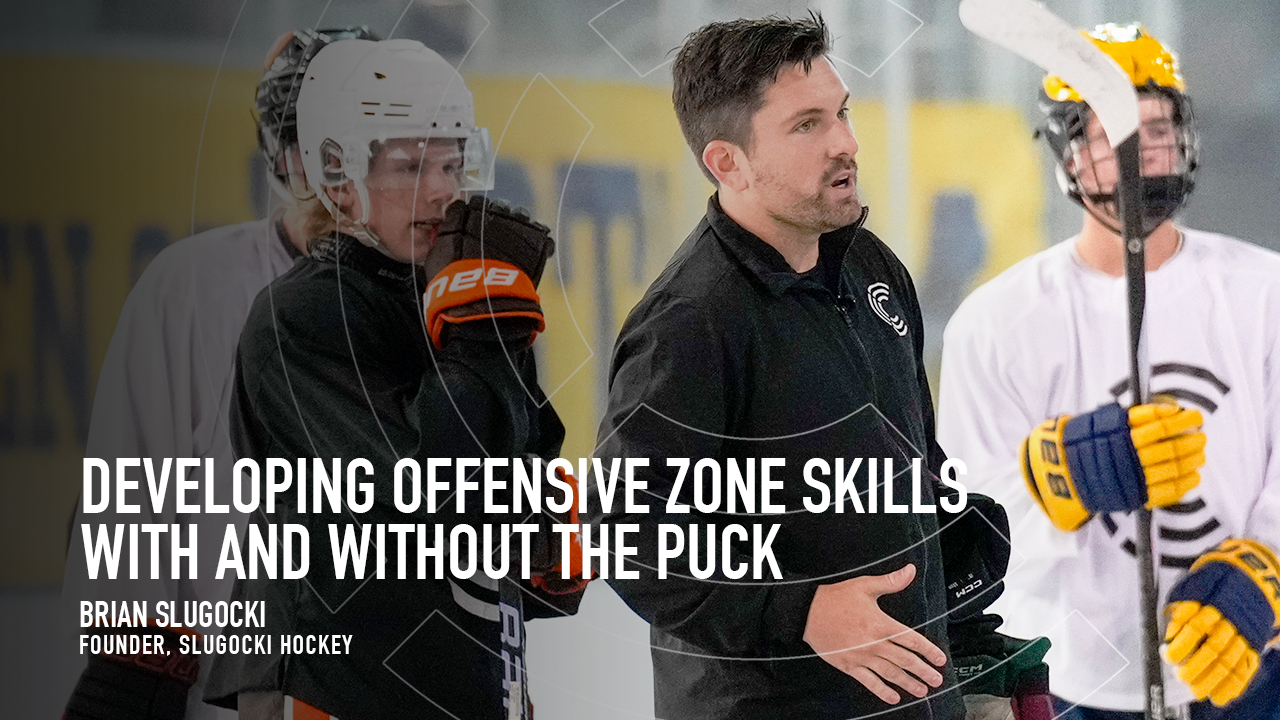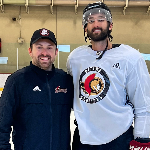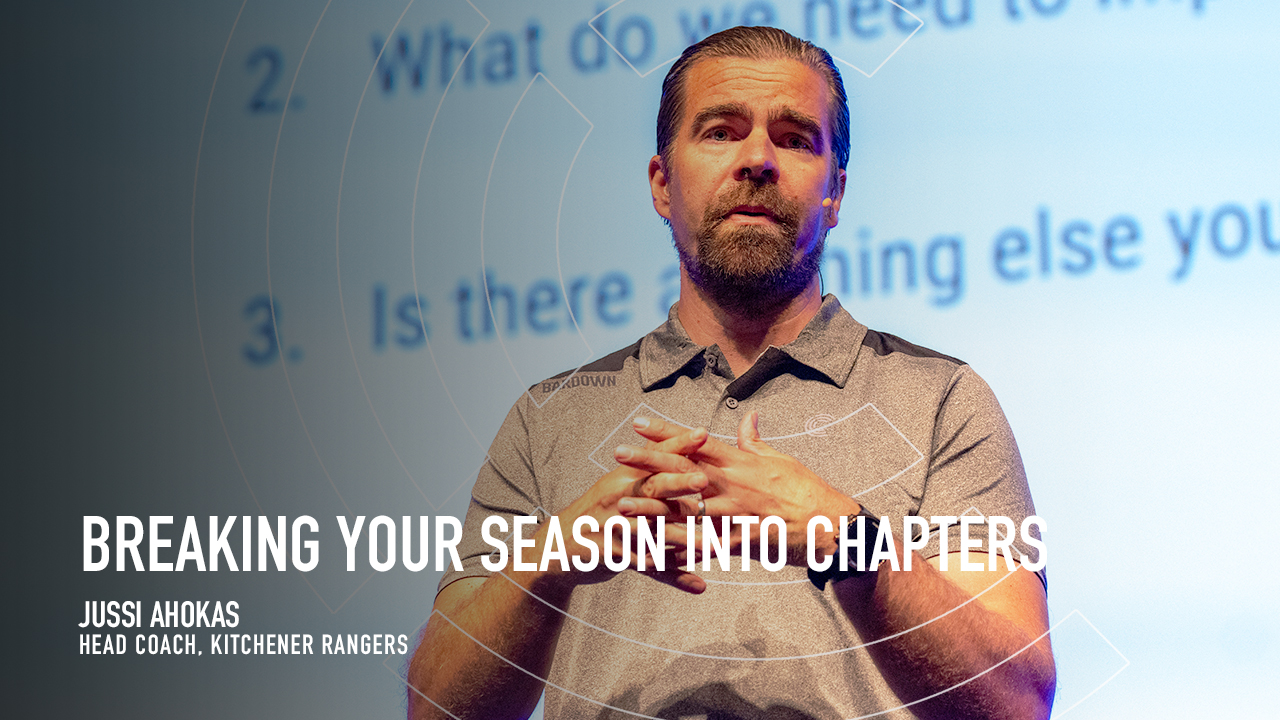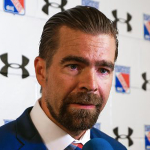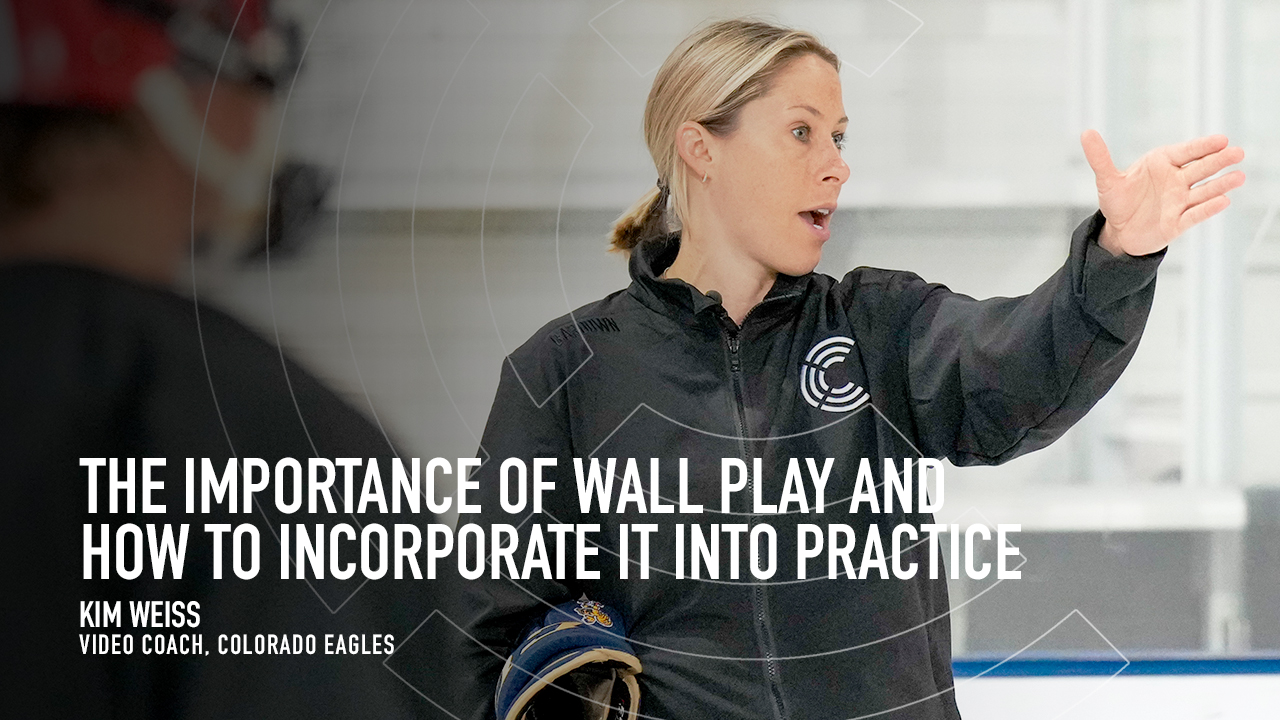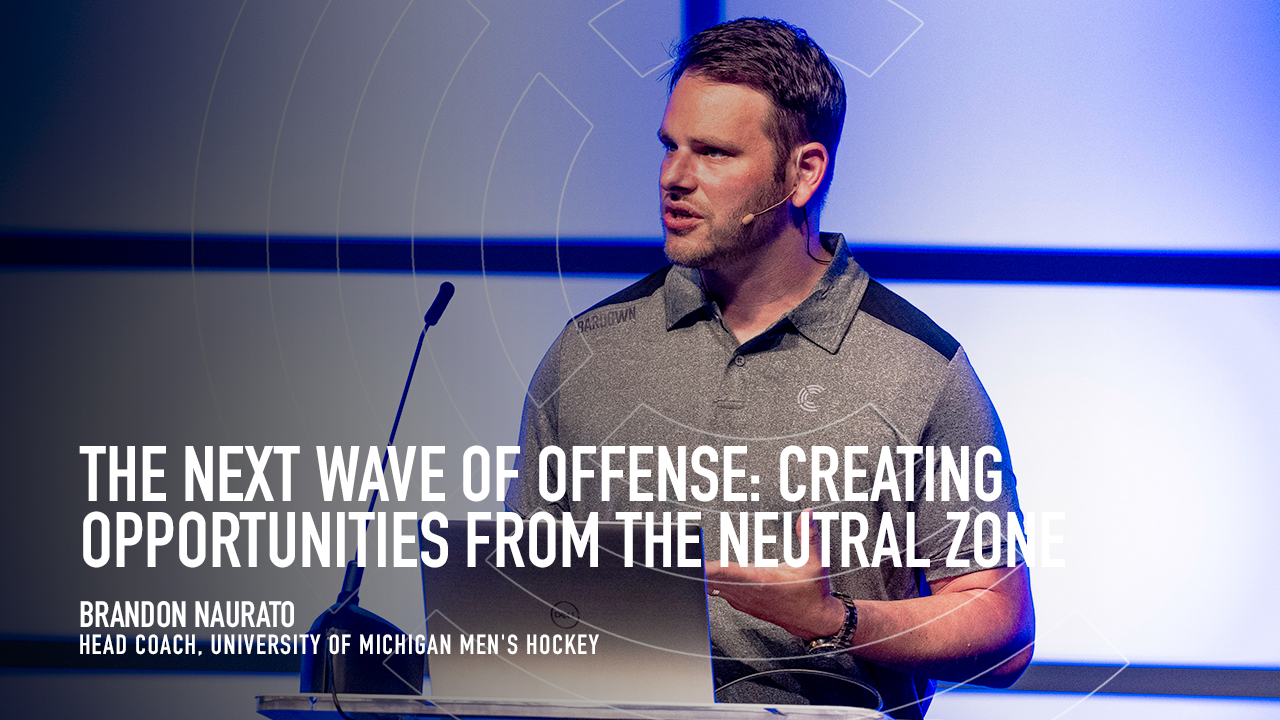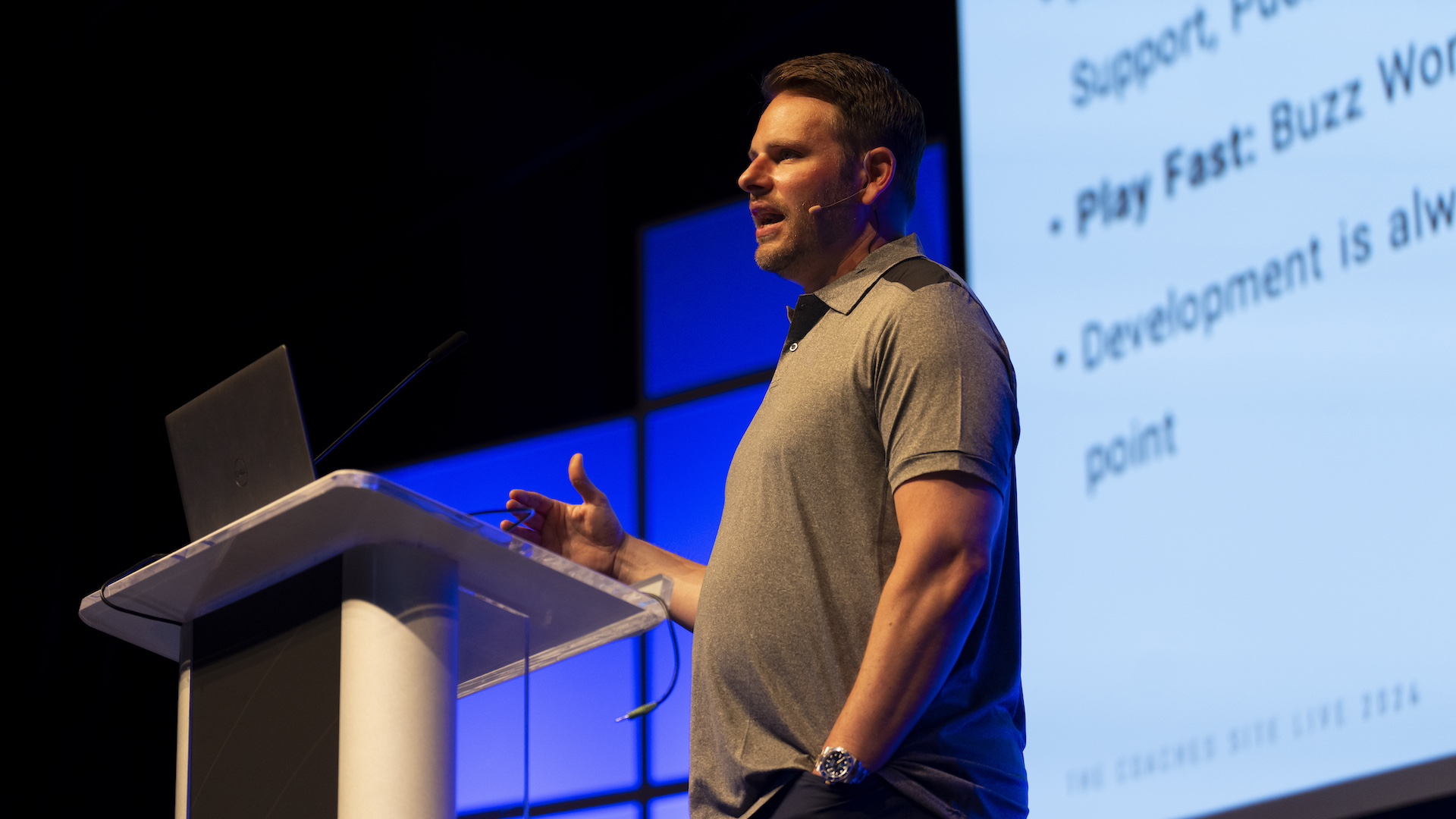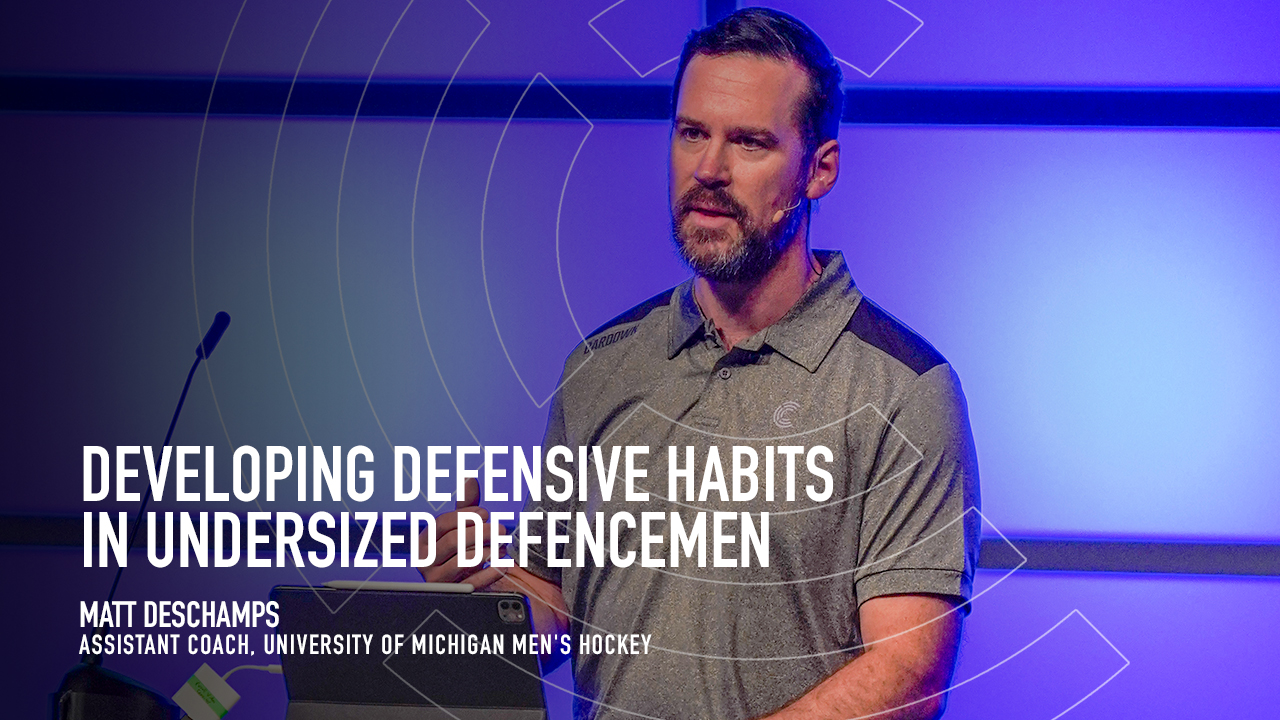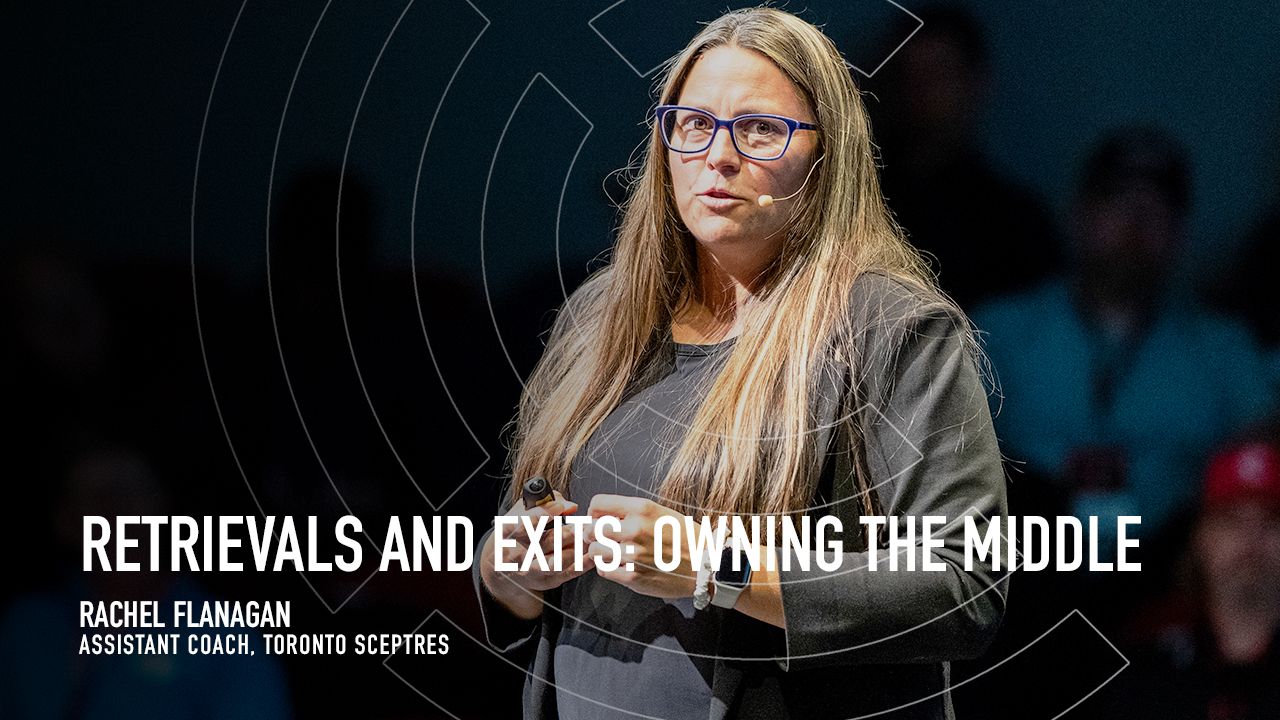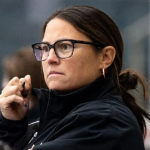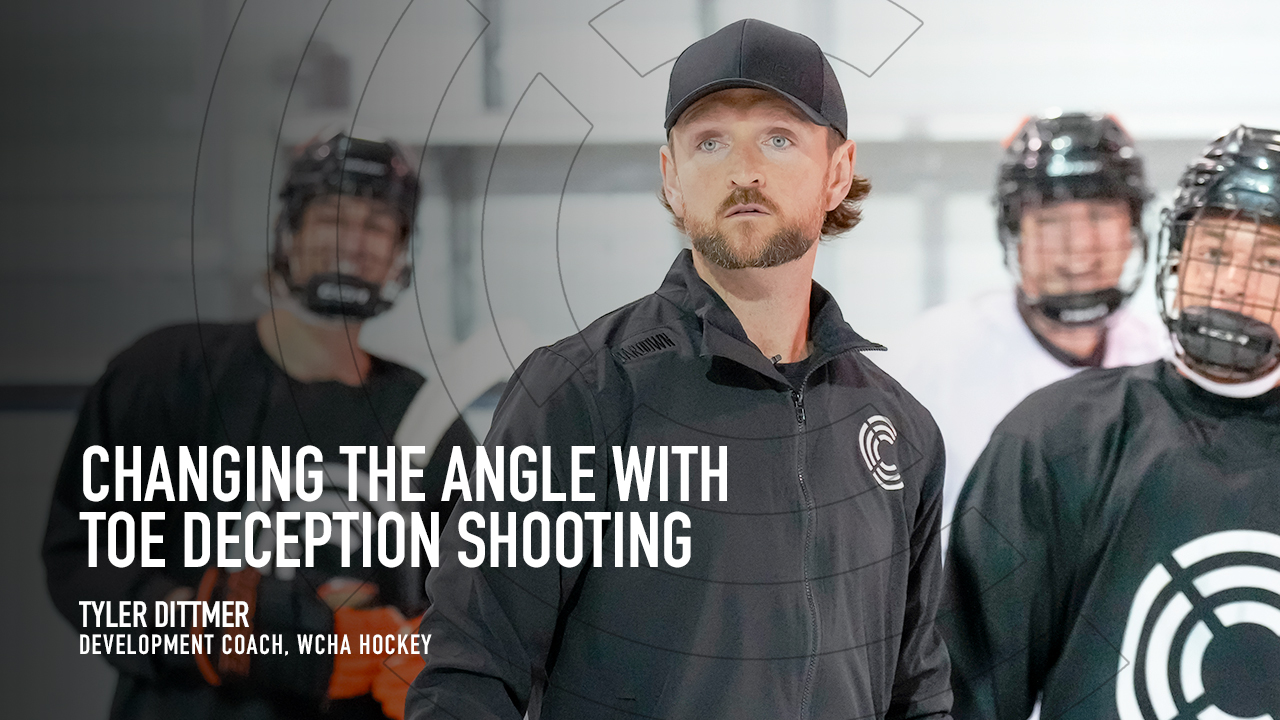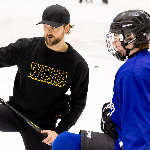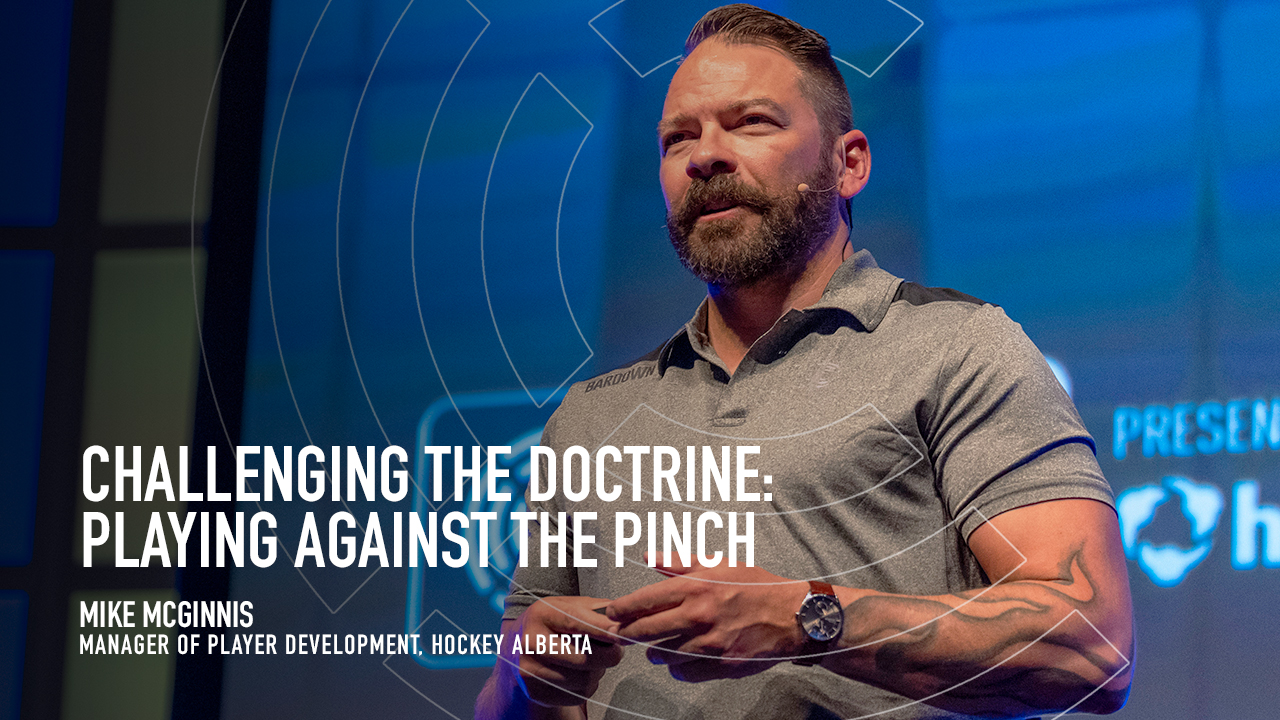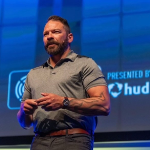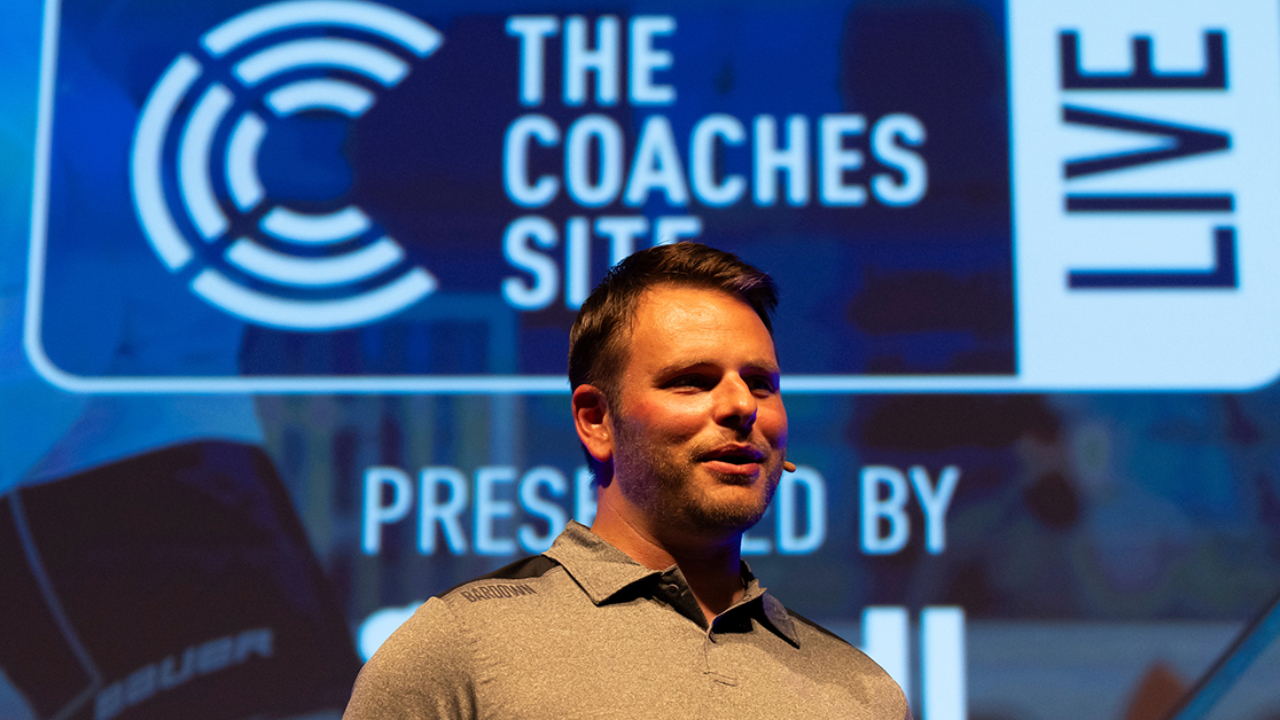
On the final day of TCS Live, three on-ice presentations kicked things off before six spectacular on-stage presentations ended the three-day coaching masterclass.
All TCS Live presentations will be released starting this fall to members of The Coaches Site. Until then, here’s a sample of the goods:
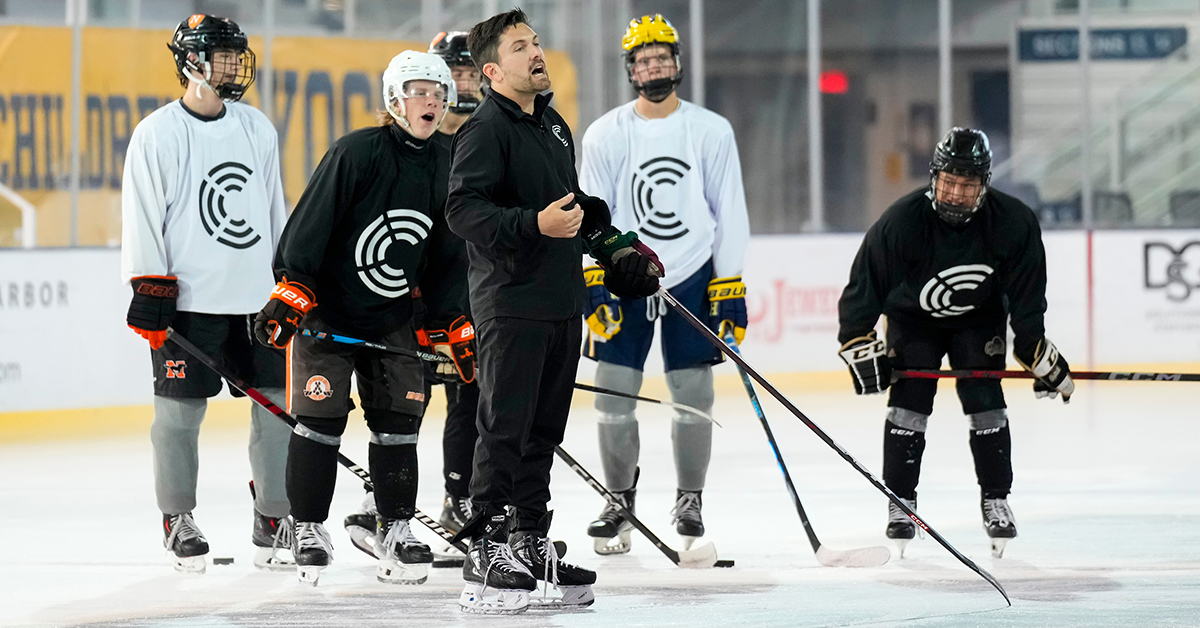
Brian Slugocki
To start Saturday, Brian Slugocki gave an in-depth presentation focusing on developing offensive zone skills with and without the puck.
Slugocki brings high energy to all his constructed drills. His goal in his drills is to get his players to focus on being patient with the puck, along with looking for the next play in the offensive zone. Slugocki wants his players to get used to timing plays right in the offensive zone while also preaching many core fundamentals of the game such as always having your head up and maintaining momentum through cuts and transitions on the ice. Part of Slugocki’s drill philosophy is to always build on the structure of his drills. He starts out slow by allowing his players to get a feel for the drill and then gradually adds pressure to get his players in a more game-time speed atmosphere.
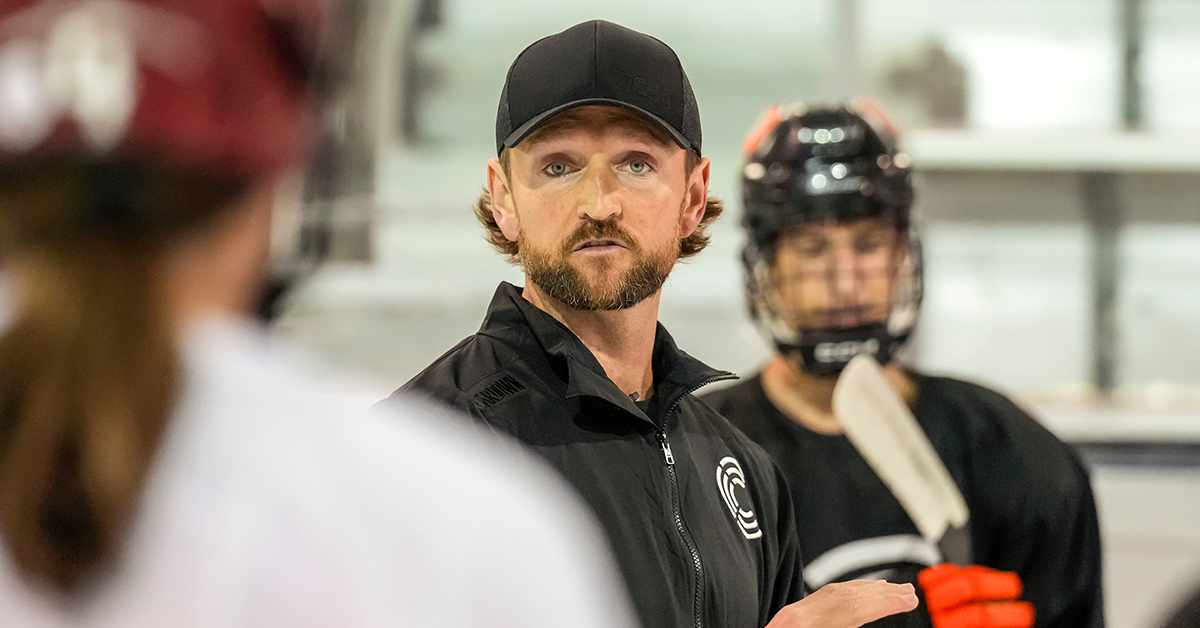
Tyler Dittmer
Working as a Skill Development Coach, Tyler Dittmer provided a full in-depth on ice presentation on changing the angle with toe deception shooting at TCS Live.
Dittmer takes great pride in his teaching of shooting the puck. Dittmer has found that the best way to beat a goaltender is by changing the angle at which a player is shooting the puck. This can be accomplished by using the toe of the stick as the main point of deception. Before getting into specific shooting drills, Dittmer spends time getting his players focused on simple stickhandling drills on both a player’s strong and weak side of their body. Taking time to get his players to engage in full range stickhandling and passing drills allows his players to fully activate their upper body, preparing them to get into his shooting drills.
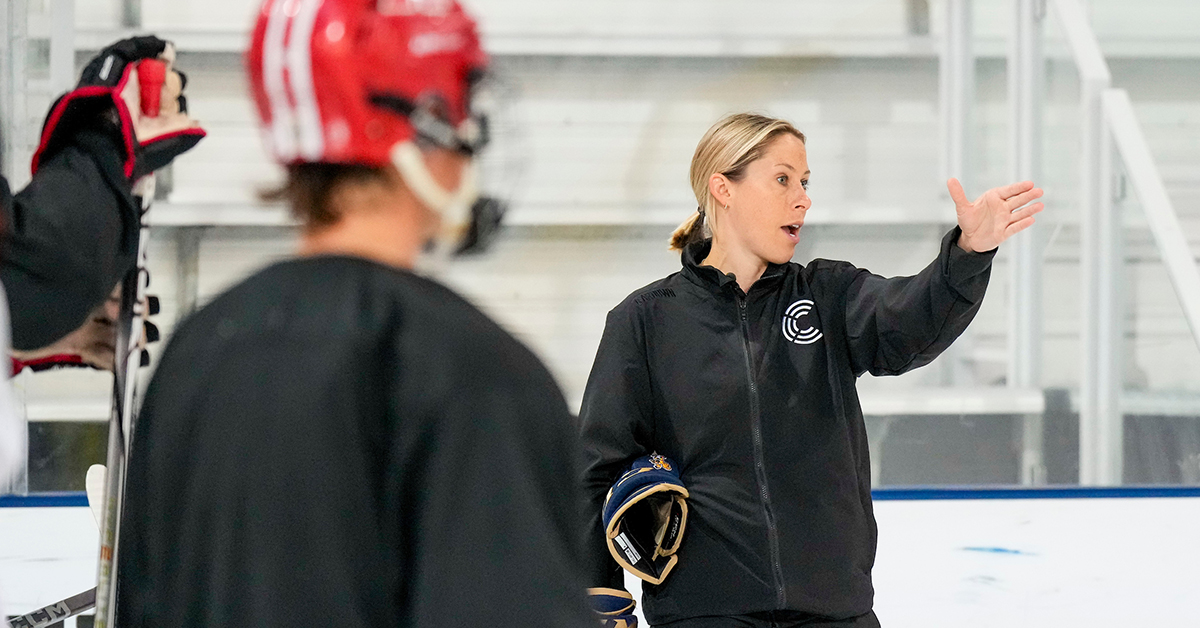
Kim Weiss
As a well established and accomplished coach, Kim Weiss understands the importance of wall play in hockey as she presented at TCS Live.
The three habits of elite wall play include a focus on shoulder checking and scanning, getting the first touch of the puck, and including deception in a player’s next move off the wall. These are the three areas that Weiss focuses on with her players. To get going Weiss puts her players in a simple drill of collecting the puck off the wall with no pressure while having her players focus on shoulder checking and adding a deception turn before picking up the puck and passing it off to the next player in line. The next phase in Weiss’ drills is to add a little bit of pressure as a player goes to pick up the puck on the boards. This allows her players to get comfortable with using the three habits that make for elite wall play while having a defender on them. This also causes her players to read and react to where the pressure is coming from and creates a more game like situation.
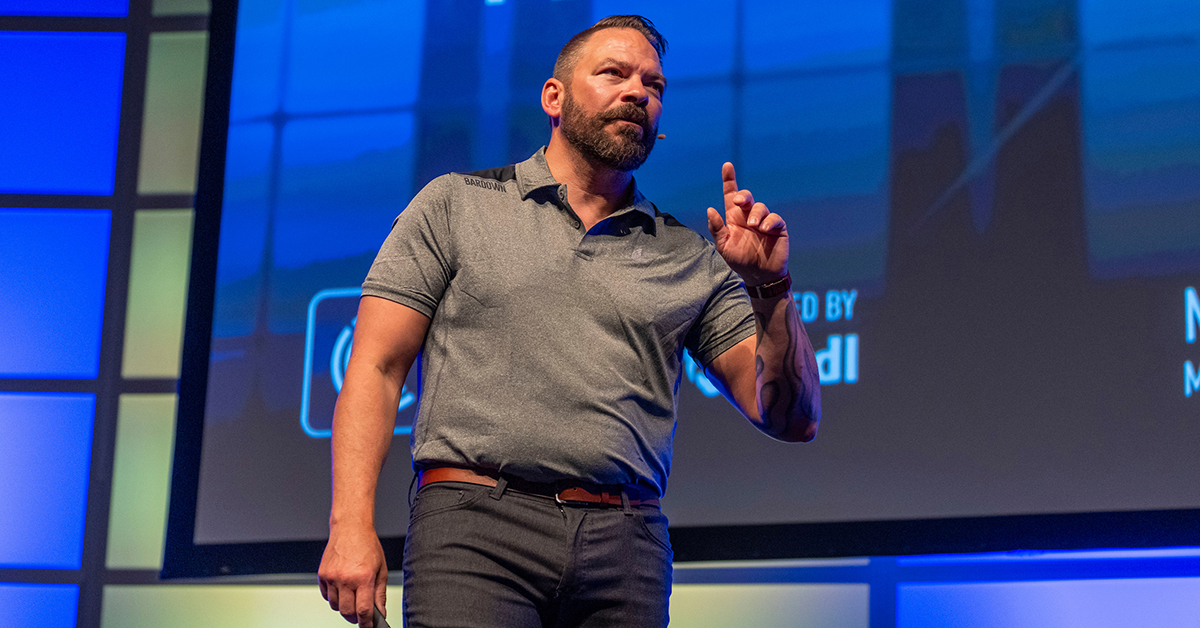
Mike McGinnis
As a Manager of Player Development, Mike McGinnis has seen a variety of new and unique concepts that most people thought would never work and are now core skills being taught to kids at young ages. McGinnis dove deeper into how to approach new concepts in hockey at TCS Live.
McGinnis is, at first, a student of the game. 95% of the time new concepts are born from simple observation and studying the best players in the game, says McGinnis. By dedicating the time and effort to really study and understand the game, a coach can better plan and prepare a practice plan for your team to directly find areas of weakness against any team at every level. When presented with a new concept, technique, or tactic you, as a coach, need to decide whether to adopt it or oppose it based on the strengths of your team. Oppose ideas that feel a little too gimmicky or like click bait; but most importantly, if the concept does not fit the mold or structure of your team, don’t use it. However McGinnis strongly suggested being the early adopter of tactics that you believe can help your team play well and effectively.
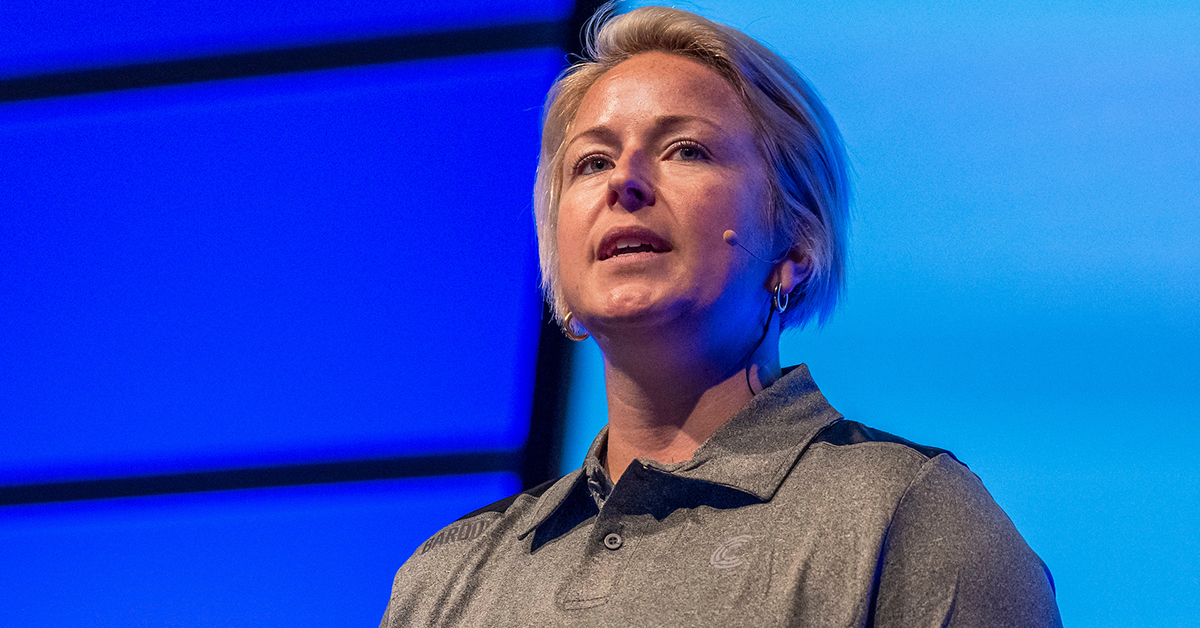
Tara Watchorn
After an illustrious playing career, Tara Watchorn is back at her alma mater as the head coach of the Boston Terriers Women’s Hockey Program. Watchorn is always preaching about gaining momentum to her team and at TCS Live she discussed how to build and ultimately capitalize on that momentum.
Watchorn’s biggest message to her players is not to be bigger than the person next to you. A simple way to do this is line changes because it can build momentum. Watchorn praised the great benefits to building momentum as a team because it enhances value and understanding for all roles in a team’s line up. It also creates an energy mismatch with your opponent while also increasing the likelihood of causing an icing and penalties by the other team. The more time and space generated causes more quality scoring chances. Watchorn preaches to her team about the three shift idea. Rather than thinking about needing to score right away, Watchorn tells her players to focus on putting three strong shifts together where all lines can build off each other.
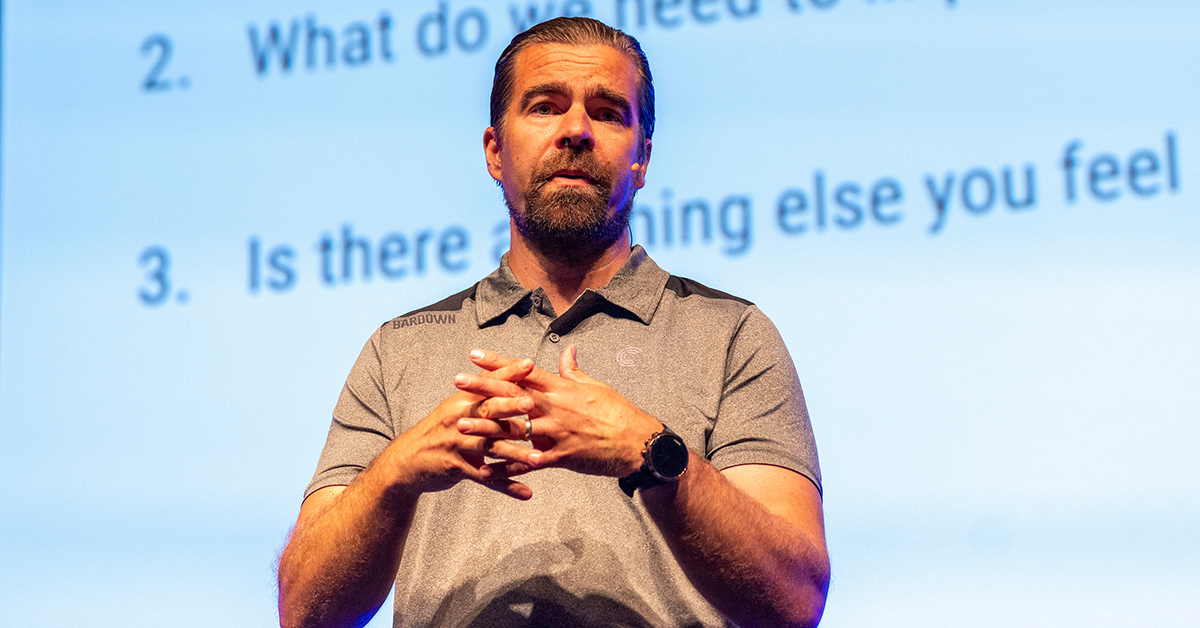
Jussi Ahokas
As one of the sport's most decorated bench bosses, Jussi Ahokas has built a distinguished reputation in the coaching industry. At TCS Live, Ahokas provided a key lesson to all coaches on the power of breaking up a season into chapters along with keeping players constantly engaged.
Building culture from day one is Ahokas’ number one priority when he first gets to his team. Culture is what we believe in, how we behave, and how we act. Every team has culture however some are built and others are not. Taking time to teach the X’s and O’s can always be done, but building a culture is the most important role as a coach. A team's culture is set day one, but it needs to be built upon throughout the long hockey season. A good culture revolves around trust with everyone being involved and working together from top to bottom of an organization. Conversations need to be honest and direct which will cause all the inevitable problems to be fixed.
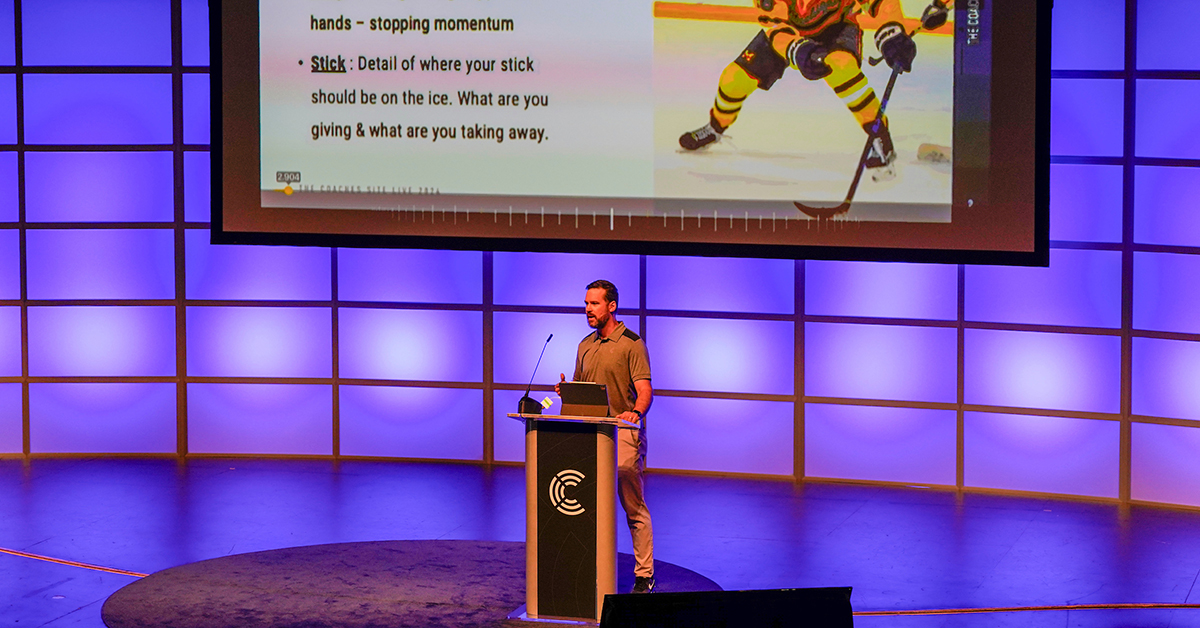
Matt Deschamps
As Michigan’s assistant coach, Matt Deschamps has the opportunity to work with some of the next best young defenders the game has to offer. An area that Deschamps focuses on is developing defensive habits in undersized defenseman as he presented on at TCS Live.
While having size as a defenseman is something that a scout looks for, there are 40 defensemen that are under 6 '0 in NHL, many of whom are thriving at hockey’s highest level. Deschamps broke down the habits that made these undersized defenseman able to make names for themselves in the NHL. The first habit Deschamps has identified is their minds. Undersized defensemen have an elite ability to read speed and threats all over the ice. Using their high hockey IQ to make up for the lack size allows them to keep up and drive plays from the blueline. The next common habit is in the defensemen's feet. They have quick skating that focuses on angling and surfing on the blue line. Having strong edges to get to their opponents and break up plays is key for a smaller defenceman.
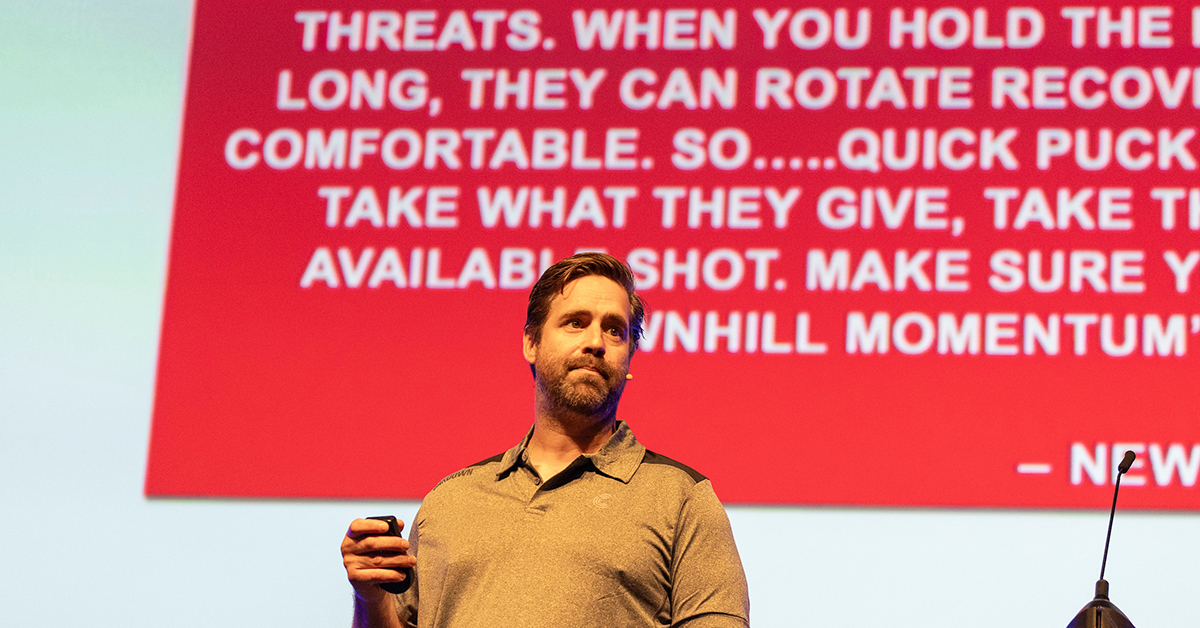
Ben Cooper
Ask any coach and they will tell you that a team’s power play can win and lose games for a team. Ben Cooper is an Associate Coach for Red Bull Salzburg and at TCS Live he dove deeper into the importance of the power play.
As the man who runs the power play for Salzburg, Cooper uses the off season to exchange ideas about what can be done to enhance the power play.When in season, it is essential to find solutions to other teams penalty kills and make adjustments as you see fit as a coach. An important thing to do when coaching the power play is to get a second set of eyes and share ideas about the power play. However, it is important to not have too much of an impact on the power play as a coach. Give the players the structure and then let them do their thing; don’t over-coach the power play.Cooper tells his players constantly, when you fail to keep your composure, an elite power play fails 75% of the time. The areas that Cooper focuses on when coaching the power play is to make sure all five guys are out-working the four killers. Have a plan for both a win and loss right off the face off. Additionally, he encourages pace while always having guys at the net ready to pick up the trash.
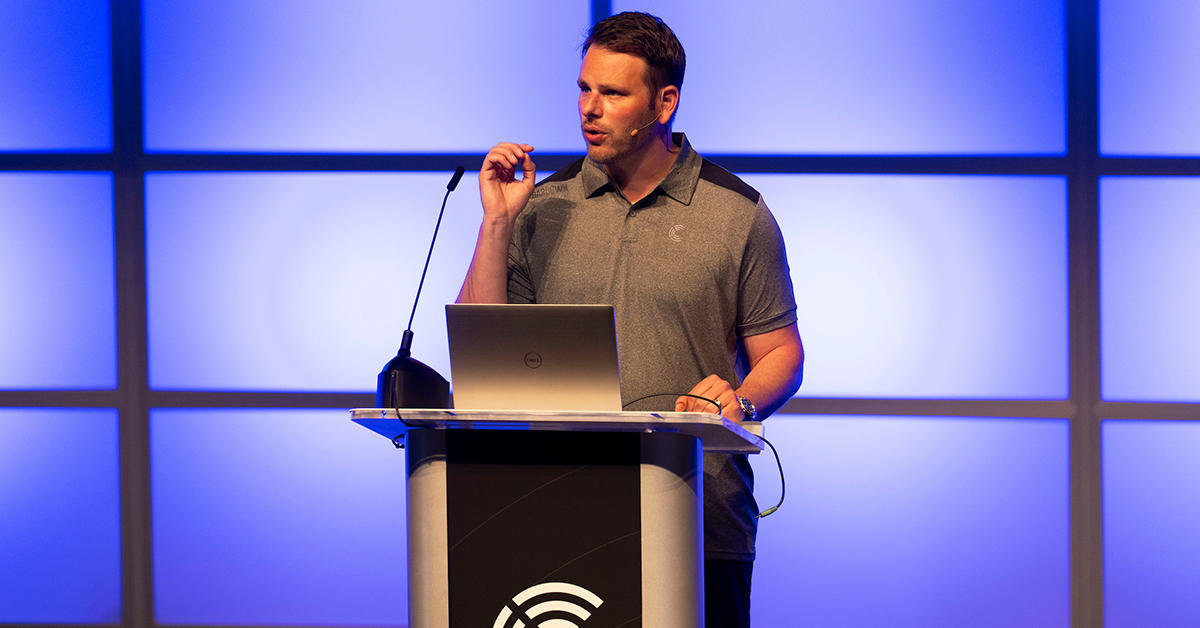
Brandon Naurato
In his first two seasons at the helm, Brandon Naurato has taken the Wolverines back to the Frozen Four for their third consecutive season. Naurato has a complete understanding of all aspects of the game and at TCS Live, he took the time to dive deeper into ways to create opportunities from the most underrated area of the ice, the neutral zone.
The neutral zone may only be the origin of 15% of goals scored in the NHL, but it is a great way to generate offense. The key to having success in transition in the neutral zone is to win races and gain puck control. Naurato focuses on having planned routes for his players to take in their neutral zone transition play. Even in the neutral zone, Naurato wants his players to always create triangles in their structure on the ice and work within five feet of each other. Having close spacing when attacking allows for quick support of all areas on the ice, so that when pucks are bobbled and mishandled there is support right away to get back on the attack through the neutral zone. Once successful getting through the neutral zone into the offensive zone, Naurato wants the Wolverines to get into their designed structure as fast as possible.

